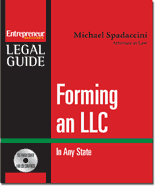Technology licensing agreement

What is a new license agreement? Technology licenses are agreements in which the owner of technological IP lets another party use , change , or even resell the property in exchange for compensation. The compensation can be either a lump sum royalty, royalties based on the value of production, or the right to use the licensee’s technology.

A wide variety of special contractual issues must be addressed in preparing a technology license agreement , starting with the definition of certain terms. Basic option agreement. Harvard also offers option agreements to companies that are considering licensing a Harvard technology. An option agreement permits a company to “hold” a technology for a short period of time, during which the company can further evaluate its potential, or raise funding for product development, without committing itself or Harvard to the obligations of a license agreement.
A technology license agreement is an arrangement that involves an owner (licensor) of some technological intellectual property who accepts compensation (consideration) to let someone else ( licensee ) use, change, or resell the property. Once the parties to an intended licence have reached agreement on the proposed terms, it is vital to check the proposed terms against the Technology Transfer Block Exemption Regulation and the Guidelines in order to ensure that the final agreement does not infringe competition law. Third: Technology licensing occurs in the context of a business relationship in which other agreements are often important.
These agreements are inter- relate whether they are in distinct docu - ments or integrated in one big document. A Licensing Agreement is a document used by the owner of some form of intellectual property - such as a logo, photograph, or song - to give permission to some other individual to use that property. Licensing agreements are widely used for the commercialization of technologies. In addition to detailing all parties involve licensing agreements specify in granular detail, how licensed parties.
In the general parlance a Technology Transfer Agreement can be defined as the transfer of intellectual property from one organization to the other and the most collective means of transferring them is through licensing agreement whereby the licensee attains a right to use the technology for a fixed period of time by paying a particular fee for it. The Guide is designed to address the practical business needs and concerns of non-specialists who are required to deal with licensing in or licensing out technology , be it directly or indirectly. While licensing is a complex means of exploiting intellectual property, the beginnings of any licensing agreement is understanding the reason behind why a technology is licensed. A licensing agreement is a legal contract between two parties, known as the licensor and the licensee. In a typical licensing agreement , the licensor grants the licensee the right to produce and.

You can expect that the company licensing the technology to you (the licensor) is going to want you to do something useful with it. Particularly in the case of technologies that are developed with. Abstract This chapter provides a road map for licensing professionals to identify the most common terms, contractual obligations, and other provisions that are likely to be encountered in crafting a license agreement.
Emphasis is placed on agricultural technology licenses. How a License Agreement Works. A license agreement is a business contract between two parties. The licensor (the seller of the license ) owns the asset being licensed and the licensee (the buyer) pays for the right to use the license. The licensee pays royalties to the owner in exchange for the right to sell the product or use the technology.
A licence is an agreement between you as the IP right owner and another party. It grants them permission to do something that would be an infringement of the rights without the licence. In other words, a licensing agreement grants the licensee the ability to use intellectual. Hillcrest intends to license, market and deploy US Patented clean energy technologies, by way of exclusive agreement in the United States and European Union.
The technologies have been shown to substantially increase efficiency of conventional electrical generators in laboratory testing. The technology licensing agreement (the “ Agreement ”) grants to Valkor the right to use Petroteq’s proprietary patented technology to engineer, construct, operate and finance oil sands extraction plants (individually, a “Plant”) to transform highly oil saturated feed ore recovered from mining operations to heavy crude. An important consideration in structuring licensing agreements is the portion of income derived from licensing revenue versus that deriving from royalties.
Royalty revenue is dependent on the selling ability of the party integrating the licensed technology , and the size of the addressable market for the end-product. Licensees should closely consider what contractual warranties a technology licensor is giving in respect of both hardware and software components of the IoT system, and what rights the licensee has if the technology falls short of expectation. Qualcomm has successfully reached a long-term patent agreement with Huawei in order to resolve a long-term licensing dispute.

Comments
Post a Comment